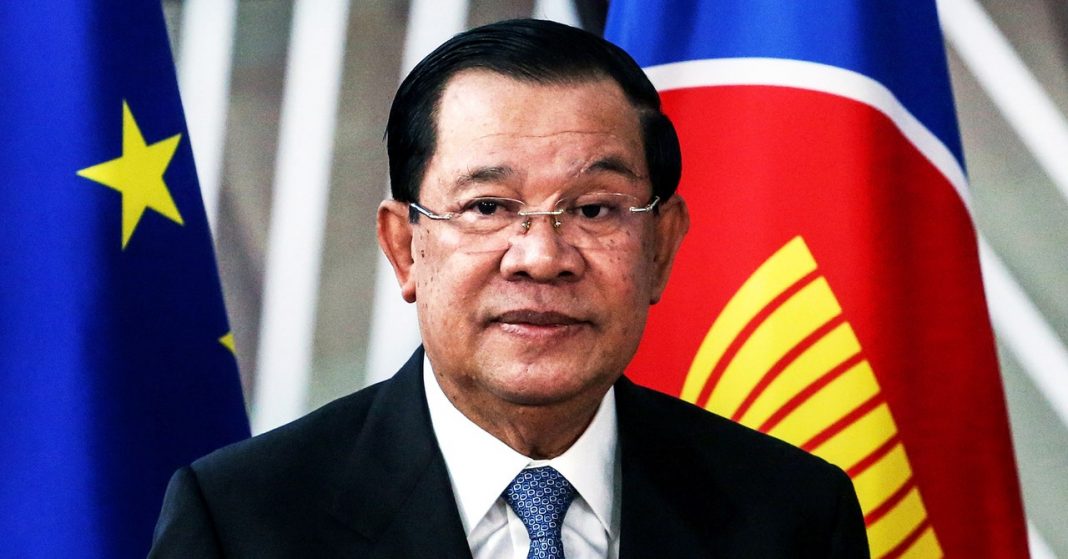The speed of the prime minister’s about turn, and his unwillingness to act against Facebook, show how important the platform is in Cambodia.
More than 10 million of Cambodia’s 16.6 million citizens—or about 92 percent of the people who have access to the internet—use Facebook. Hun Sen, the country’s leader since 1985, has had an active page since 2010. In 2015, Facebook introduced its Free Basics program in the country, partnering with a local telecom company to make a select group of websites and apps, including Facebook and Messenger, effectively free for users. This meant that even poor Cambodians could access Facebook, and that for many, Facebook and its products were the internet.
“Facebook has been very important for [Hun Sen’s] political message, as well as in making him close to the electorate and the citizens of different parts of the country,” says Sokphea Young, a researcher at University College London who has studied the role the platform has played in Cambodia. In particular, people in remote areas of the country have been able to connect with the ruling party over the platform, Young says.
The ubiquity of the platform, he says, also allows it to function as a tool of state surveillance. “If you do anything ‘bad’ on Facebook, try to mobilize anything that does not go along with the law, you will be arrested,” he says. “Facebook is run in a democratic country, but in this way is supporting the ruling party.”
That function—and the economic significance of Facebook, which is used by many businesses in Cambodia—makes it unlikely that the country would completely ban the platform, Young says.
However, a ban is not impossible. The CPP won the national election, amid allegations of vote-rigging. In a widely anticipated move, Hun Sen announced that he would step down on August 22 and hand over the premiership to his son, Hun Manet. Hun Sen will become president of the Senate and acting head of state when Cambodia’s king travels abroad.
The country has previously ordered telecoms companies to block dozens of sites, including most independent media, and last year created its own internet gateway that gives it more control over what people in the country can access.
With the regime’s power over the country secured, there is less jeopardy for the government in blocking Facebook. “We see that as a real threat now,” says Golda Benjamin, Asia-Pacific campaigner with Access Now. “Because the election is over, I think there’s a real threat of blocking the platform and then also threatening the physical presence of any Facebook staff in Cambodia.”
The threat of a ban complicates Meta’s decisionmaking, and introduces both commercial and freedom-of-speech considerations into its deliberations: Is it better for the platform to enforce its policy strictly and risk millions of people losing access to information and services, or to compromise its policy—and the integrity of the Oversight Board—to keep them online?
Meta spokesperson Corey Chambliss told WIRED that the company “remains focused on making sure as many people as possible can use our services to share what matters to them, while removing content that breaks our rules.”
